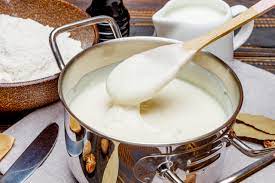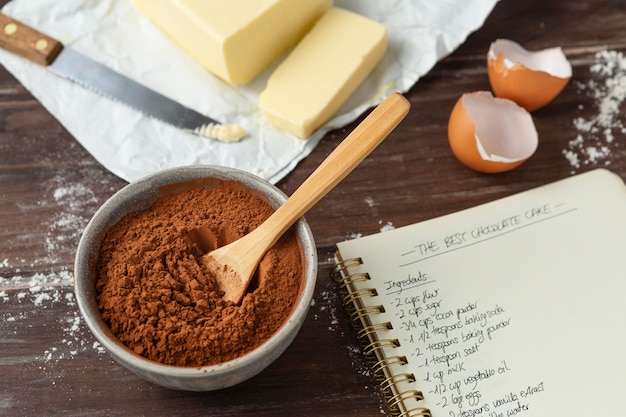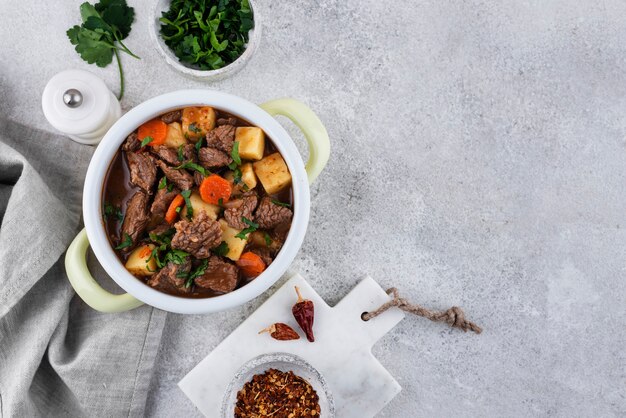Get the Creamiest Alfredo Sauce Ever with These How to Thickening Tips
Alfredo sauce is a beloved and classic sauce that is known for its rich, creamy, and indulgent flavor. Whether you are making it from scratch or using a store-bought version, sometimes you may find that your Alfredo sauce is a bit too thin or lacks that luxurious texture you desire. Luckily, there are several simple ways to make your Alfredo sauce thicker and creamier, allowing you to indulge in a truly decadent pasta experience.
1. Use Heavy Cream or Half-and-Half
One of the easiest ways to give your Alfredo sauce a thicker and creamier consistency is to use heavy cream or half-and-half instead of regular milk. The higher fat content in these dairy products will help to add richness and body to your sauce. Simply substitute the milk called for in your recipe with an equal amount of heavy cream or half-and-half, and you will notice a significant improvement in the thickness and creaminess of your sauce.
2. Add Cream Cheese or Greek Yogurt
If you are looking for a slightly tangy flavor and even more creaminess, consider adding cream cheese or Greek yogurt to your Alfredo sauce. These ingredients not only thicken the sauce but also contribute to its creamy texture. To incorporate cream cheese, simply melt it into the sauce over low heat, stirring until it has completely blended. For Greek yogurt, whisk it into the sauce at the end of cooking, just before serving.
3. Sprinkle in Parmesan Cheese
Another way to thicken and enhance the creaminess of your Alfredo sauce is to add grated Parmesan cheese. This classic Italian cheese not only adds a rich and nutty flavor but also acts as a natural thickening agent. Stir in a generous amount of freshly grated Parmesan cheese while your sauce is simmering, and you will notice it thickening as it melts into the sauce.
4. Use a Roux
If your Alfredo sauce is still not thick enough after trying the above methods, you can create a roux to add thickness. A roux is made by cooking equal parts flour and butter together before incorporating it into the sauce. Start by melting butter in a separate saucepan, then whisk in an equal amount of flour until it forms a smooth paste. Cook the roux for a few minutes, then slowly whisk it into your Alfredo sauce, allowing it to thicken as it simmers.
By following these simple tips and tricks, you can transform your Alfredo sauce into a thicker and creamier delight that will elevate your pasta dishes to new heights of indulgence. Whether you choose to use heavy cream, cream cheese, Parmesan cheese, or a roux, these methods are guaranteed to give your sauce the luxurious texture you desire.
Adding Heavy Cream
One of the easiest ways to make your Alfredo sauce thicker and creamier is to add heavy cream. Heavy cream is a rich and indulgent addition that will instantly elevate the sauce to a new level of decadence. Here’s how to do it:
Step 1: Gather Your Ingredients
Before starting, make sure you have all the necessary ingredients on hand. You’ll need:
| Ingredients | Measurements |
|---|---|
| Butter | 1/2 cup |
| Garlic | 2 cloves, minced |
| Heavy cream | 1 cup |
| Grated Parmesan cheese | 1 cup |
| Salt | To taste |
| Black pepper | To taste |
Step 2: Cook the Butter and Garlic
In a saucepan, melt the butter over medium heat. Add the minced garlic and cook until fragrant, about 1-2 minutes.
Step 3: Add the Heavy Cream
Pour the heavy cream into the saucepan with the butter and garlic. Stir well to combine.
Step 4: Simmer and Thicken
Reduce the heat to low and let the sauce simmer for about 5 minutes, or until it thickens to your desired consistency, stirring occasionally.
Step 5: Add Parmesan, Salt, and Pepper
Once the sauce has thickened, stir in the grated Parmesan cheese until melted and fully incorporated. Taste and season with salt and black pepper as needed.
And that’s it! By adding heavy cream to your Alfredo sauce, you can achieve a richer and more luscious texture that will take your dish to the next level. Enjoy!
Incorporating Cheese
One of the easiest and most delicious ways to make your Alfredo sauce thicker and creamier is by incorporating cheese. Cheese not only adds richness to the sauce, but it also helps to thicken it up.
You can use a variety of cheeses to achieve the desired thickness and flavor. Parmesan cheese is a classic choice for Alfredo sauce as it melts easily and adds a salty, savory taste. Other options include Romano cheese, Asiago cheese, and even cream cheese.
To incorporate cheese into your Alfredo sauce, start by melting butter in a saucepan over medium-low heat. Once the butter has melted, add minced garlic and cook until fragrant. Then, whisk in all-purpose flour to create a roux. Gradually whisk in milk or heavy cream, depending on your preference, and bring to a simmer.
Next, add your cheese of choice. Grate the cheese before adding it to the sauce to ensure it melts easily. Stir the cheese into the sauce until fully melted and smooth. If the sauce is still not thick enough, you can continue to cook it over low heat, stirring constantly, until it reaches your desired consistency.
To enhance the creaminess of the sauce, you can also add a touch of cream cheese. Cube the cream cheese and stir it into the sauce until fully melted and incorporated. The cream cheese will not only add richness but also help to thicken the sauce even further.
Remember that the type and amount of cheese you use will affect the taste and texture of your Alfredo sauce. Feel free to experiment with different combinations to find the perfect balance of flavors for your palate. Whether you prefer a milder, creamy sauce or a stronger, cheesier one, incorporating cheese is an excellent way to make your Alfredo sauce thicker and creamier.
Using Cornstarch or Flour
Another method to thicken and creamify your Alfredo sauce is by using cornstarch or flour. Both of these ingredients are commonly used as thickeners in sauces and gravies, and they can work wonders for your Alfredo sauce as well.
Cornstarch: To use cornstarch as a thickening agent, you will need to create a slurry first. Start by mixing 1 tablespoon of cornstarch with an equal amount of cold water in a small bowl. Once the cornstarch is fully dissolved, add the slurry to your simmering Alfredo sauce while stirring constantly. Continue to cook for a minute or two until the sauce thickens to your desired consistency.
Flour: Alternatively, you can use flour to thicken your Alfredo sauce. Begin by creating a roux, which is a mixture of equal parts flour and fat. Melt 2 tablespoons of butter in a saucepan over medium heat, then gradually whisk in 2 tablespoons of all-purpose flour until it forms a smooth paste. Cook the roux for a minute or two to get rid of any raw flour taste. Next, slowly add your simmering Alfredo sauce to the roux while whisking continuously. Cook for a few minutes until the sauce thickens and reaches a creamy consistency.
Note: If you choose to use flour, keep in mind that it may alter the taste and texture of your Alfredo sauce slightly. Cornstarch tends to create a smoother and glossier sauce, while flour can add a slightly grainy texture. Experiment with both options to see which one you prefer.
By incorporating cornstarch or flour into your Alfredo sauce, you can easily achieve a thicker and creamier texture that will coat your noodles beautifully. These thickening agents are readily available in most kitchens and can rescue a runny sauce in no time!
Whisking in Egg Yolks
One of the most effective ways to make your Alfredo sauce thicker and creamier is by whisking in egg yolks. The egg yolks add richness and enhance the velvety texture of the sauce.
How to Whisk in Egg Yolks
To thicken your Alfredo sauce with egg yolks, follow these steps:
- In a separate bowl, whisk together the desired number of egg yolks. The number of egg yolks depends on how thick you want your sauce to be.
- Once your sauce is cooked and thickened to your preference, remove it from heat.
- Slowly pour a small amount of the hot sauce into the bowl with the whisked egg yolks while continuously whisking.
- Continue whisking the egg yolk mixture vigorously to temper the yolks and prevent them from scrambling.
- Gradually pour the tempered egg yolk mixture back into the saucepan with the remaining sauce, whisking continuously.
- Return the saucepan to low heat and cook the sauce for an additional 1-2 minutes, whisking constantly, until thickened.
- Remove the sauce from heat and serve immediately.
By whisking in egg yolks, you will achieve a thicker and creamier Alfredo sauce that is sure to impress your guests. The egg yolks also add a nice touch of richness and flavor to the sauce.
Simmering and Reducing the Sauce
One of the easiest ways to thicken and creamify your Alfredo sauce is by simmering and reducing it. Simmering allows the sauce to slowly cook and thicken, while reducing concentrates the flavors and thickens the sauce even further.
Simmering the Sauce
To simmer the sauce, start by bringing it to a low boil over medium heat. Once it starts boiling, reduce the heat to low and let it simmer uncovered. This gentle heat will slowly reduce the moisture in the sauce, making it thicker and creamier.
Make sure to stir the sauce occasionally to prevent it from sticking to the bottom of the pan or developing a skin. You can use a whisk or a wooden spoon to gently mix the sauce and evenly distribute the heat.
Reducing the Sauce
If you prefer an even thicker Alfredo sauce, you can further reduce it after simmering. To do this, simply continue simmering the sauce uncovered over low heat until it reaches your desired consistency.
As the sauce reduces, it will become more concentrated in flavor, so you might need to adjust the seasoning accordingly. Taste the sauce from time to time and add salt, pepper, or any other seasonings to balance the flavors.
Keep in mind that the sauce will continue to thicken a bit even after you remove it from the heat, so it’s better to slightly under-reduce it than to over-reduce it. You can always heat it up again if you want it thicker.
Simmering and reducing the sauce is a simple yet effective way to achieve a thicker and creamier Alfredo sauce. It allows the flavors to develop and intensify while also giving the sauce a velvety texture. So next time you make Alfredo sauce, give simmering and reducing a try!
Cream Cheese or Sour Cream
If you’re looking to make your Alfredo sauce even creamier, you can try adding cream cheese or sour cream. These ingredients can add a delicious tang to your sauce while also making it thicker and richer.
To incorporate cream cheese into your Alfredo sauce, simply add small chunks of cream cheese to the sauce while it’s heating. Stir the sauce continuously until the cream cheese melts and blends into the sauce completely. This will create a velvety smooth texture and a creamy taste that pairs perfectly with the other ingredients in the Alfredo sauce.
If you prefer a slightly tangier flavor, you can opt for sour cream instead. Start by whisking some sour cream in a separate bowl until it becomes smooth. Gradually add the sour cream to the Alfredo sauce while stirring continuously. The sour cream will not only thicken the sauce but also give it a slightly tangy and refreshing taste.
Both cream cheese and sour cream can be excellent additions to your Alfredo sauce, depending on your taste preferences. However, it’s essential to remember that these ingredients can slightly alter the flavor profile of the sauce. So, make sure to adjust other seasonings accordingly to balance out the taste.
“FAQ:” How to thicken alfredo sauce
How can making a roux contribute to achieving a thick and creamy consistency in homemade Alfredo sauce?
Creating a roux, a mixture of flour and fat, helps thicken Alfredo sauce by providing a stable base that enhances the sauce’s texture, resulting in a luxurious and creamy consistency.
In what way does adding a cornstarch slurry into the simmering Alfredo sauce aid in achieving the desired thickness?
Incorporating a cornstarch slurry into the simmering Alfredo sauce acts as a thickening agent, helping achieve the desired thickness by binding with the liquids in the sauce and creating a smooth, velvety texture.
How can pre-shredded cheese impact the outcome of your chicken Alfredo, and what alternatives might be preferable?
Pre-shredded cheese may contain anti-caking agents, affecting the texture of your Alfredo sauce. Using freshly grated Parmesan or Romano cheese is preferable for a smoother and more authentic result.
What role does tapioca play in helping thicken Alfredo sauce, and why might it be a suitable alternative?
Tapioca, being starchy, can act as a thickening agent in Alfredo sauce. It’s a suitable alternative for those seeking a gluten-free option to achieve the desired consistency.
Why is it important to add cheese gradually when making Alfredo sauce, and what impact does it have on the overall texture?
Adding cheese gradually prevents clumping and ensures a smooth texture in Alfredo sauce, allowing it to melt evenly into the mixture and contribute to a velvety and creamy finish.
How does the addition of pasta cooking water or starchy pasta water contribute to the thickening of Alfredo sauce?
Utilizing pasta cooking water, rich in starch, in Alfredo sauce helps thicken the sauce while introducing a subtle pasta flavor, enhancing the overall consistency and taste.
What is the purpose of incorporating a food processor when making Alfredo sauce, and how does it influence the final product?
Using a food processor can help achieve a smoother and more homogeneous Alfredo sauce by efficiently blending ingredients, resulting in a velvety texture and consistent flavor.
How can the reduction of heavy whipping cream impact the thickness of Alfredo sauce, and what considerations should be taken into account?
Reducing the amount of heavy whipping cream enhances the thickness of Alfredo sauce, but careful monitoring is essential to prevent it from becoming too thick or altering the desired creamy consistency.
Why might incorporating milk or cream be considered as a method to help thicken Alfredo sauce, and what role does it play in the recipe?
The addition of milk or cream can contribute to thickening Alfredo sauce while providing a rich and indulgent flavor, ensuring the sauce maintains a creamy consistency.
What are the potential drawbacks of adding flour directly to hot Alfredo sauce, and are there alternative methods to achieve the desired thickness?
Adding flour directly to hot Alfredo sauce may result in clumps. Using a slurry or incorporating flour into a roux beforehand ensures a smoother texture and better integration into the sauce.
How can the addition of a slurry into the simmering Alfredo sauce contribute to achieving the desired thickness?
Incorporating a slurry, a mixture of liquid and a thickening agent like cornstarch, into simmering Alfredo sauce helps thicken the sauce by providing a smooth and consistent texture.
Why is it important to add cheese gradually when making Alfredo sauce, and how does it impact the overall quality of the sauce?
Adding cheese gradually prevents clumping and ensures a smooth texture in Alfredo sauce, allowing it to melt evenly, resulting in a velvety and creamy finish.
In what way does reducing the heavy cream impact the consistency of Alfredo sauce, and what considerations should be taken into account?
Reducing the amount of heavy cream enhances the thickness of Alfredo sauce, but careful monitoring is crucial to prevent it from becoming overly thick or affecting the desired creamy consistency.
How does making a roux contribute to achieving a thick and creamy consistency in homemade Alfredo sauce?
Creating a roux, a mixture of flour and fat, contributes to a thick and creamy Alfredo sauce by providing a stable base that enhances the sauce’s texture.
What role does a cornstarch slurry play in the process of thickening Alfredo sauce, and why might it be preferred?
A cornstarch slurry acts as a thickening agent in Alfredo sauce, binding with the liquids to create a smooth texture. It’s a preferred option for those seeking a gluten-free alternative.
How does adding more cheese impact the texture and flavor of Alfredo sauce, and what recommendations should be followed?
Adding more cheese can enhance the creaminess and flavor of Alfredo sauce, but it’s essential to balance the quantity to avoid overpowering the dish with a strong cheese taste.
Why might using cream cheese be a beneficial addition when making Alfredo sauce, and how does it contribute to the overall richness?
Cream cheese adds richness and a velvety texture to Alfredo sauce, contributing to a luxurious and indulgent flavor profile.
How can the addition of pasta cooking water or starchy pasta water aid in thickening Alfredo sauce, and what other benefits does it offer?
Utilizing pasta cooking water, rich in starch, in Alfredo sauce helps thicken the sauce while introducing a subtle pasta flavor, enhancing the overall consistency and taste.
How does the addition of a teaspoon of grated cheese impact the flavor and texture of a dish?
Incorporating a teaspoon of grated cheese enhances the richness and depth of flavor in a dish, while contributing a subtle texture that melts seamlessly into the ingredients.
In what way can the use of grated cheese by the teaspoon be a versatile cooking technique, and what considerations should be taken when incorporating it into recipes?
Utilizing grated cheese in teaspoon measurements provides a precise and controlled way to infuse dishes with cheesy goodness. Careful attention to the type of cheese and its melting properties ensures optimal results in various recipes.








